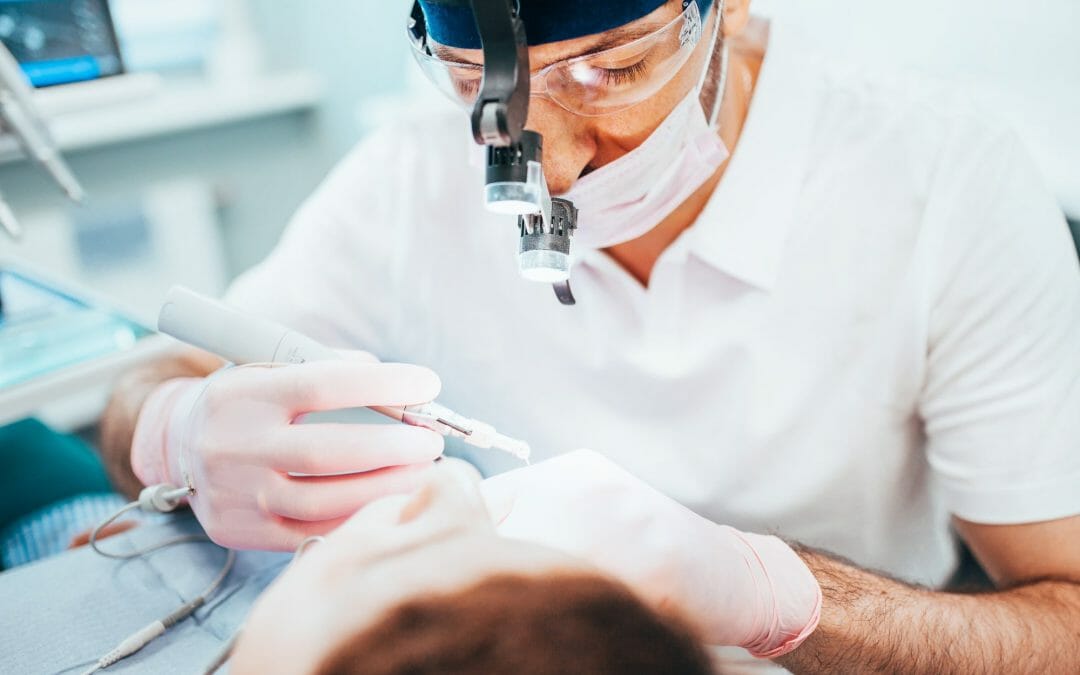Root canal procedures have a bad reputation. The rumor is that they’re painful and unpleasant. Thankfully, however, this really is not the case because modern dentistry techniques and anesthetics have made root canals less invasive, fast, and almost entirely pain-free.
If you have a root canal procedure scheduled, knowing what to expect and how to prepare can help you enjoy a stress-free dental appointment and good oral health for life.
What Is a Root Canal?
A root canal is actually a part of every person’s anatomy. The root canal is an opening in the jawbone where a tooth’s roots are anchored. The term “root canal” is often used to refer to root canal therapy which is a procedure designed to remove a tooth’s internal pulp and roots.
Why Do You Need a Root Canal?
Root canals are performed when the interior of a tooth has become infected as a result of being exposed through illness, injury, or severe tooth decay to bacteria from the outside. Without a root canal, this type of infection only worsens. It can lead to the permanent loss of a patient’s tooth and the deterioration of the jawbone, in addition to more serious, systemic infections and damage throughout the body.
How to Prepare for a Root Canal Procedure
There is not much you need to do to prepare for a root canal. However, there are some steps you can take to simplify your procedure and ensure everything goes smoothly.
1. Ask About Sedation Dentistry Options
If you experience dental anxiety, we encourage you to ask us about options for sedation dentistry before your root canal appointment. Often oral sedation or sedation with nitrous oxide (laughing gas) helps patients stay relaxed and calm throughout a root canal procedure.
2. Eat Before Your Appointment
It’s necessary to numb the entire treatment area for a root canal procedure. As a result, eating after treatment can be difficult. Have a good meal before your appointment, so that you can relax and avoid putting any pressure on the treatment area after your root canal.
3. Avoid Alcohol and Tobacco
Tobacco and alcohol can react adversely with the anesthetics used during root canal therapy. They can also increase inflammation in the mouth and throughout the body.
For optimal treatment results and a swift recovery, we recommend abstaining from alcohol and tobacco use of any kind for a full 24 hours prior to a root canal appointment and throughout your recovery.
4. Take Pain Medications as Instructed
We might recommend that you take an over-the-counter anti-inflammatory medication before the start of your appointment to proactively reduce swelling that can cause pain from the start.
5. Take Antibiotics as Instructed
Depending on your specific infection and whether an abscess is present, we might prescribe you an antibiotic medication to begin taking before your root canal procedure. Be sure to provide our office with a complete list of any allergies or intolerances you have to medications in addition to a list of all the medications and supplements you are currently taking.
6. Sleep Well
The body functions and heals best when it is fully rested. In fact, much of this healing occurs while we sleep. To support your body’s natural healing process, arrange your schedule so that you can get a full night’s rest both the night before and the night after your root canal treatment.
7. Ask Questions
One of the best ways to be prepared for a root canal is to be informed. If you have any questions at all about your upcoming procedure, medications, or recovery plan, we encourage you to contact our dentist, Dr. Jared Harding.
What to Expect During a Root Canal Procedure and Recovery
At your root canal appointment, our dentist first thoroughly numbs the treatment area, using a local anesthetic. We then drill a hole in the tooth that allows the dentist to access the tooth’s interior pulp and root system.
We then remove all signs of bacterial infection in addition to the soft tissues of the tooth’s inside (roots and pulp). The dentist then smooths the interior walls of the tooth and the root canal and fills them using a special dental material called gutta-percha.
Once filled, a temporary dental crown is placed over the original tooth to protect the tooth’s structure and interior. We then have a customized dental crown manufactured to fit your tooth and schedule you for a follow-up appointment to have your new permanent crown placed.
Recovery from a root canal is fairly simple. Before you leave the office, we provide you with some after-care instructions which might include avoiding chewing on hard foods during your healing period in addition to using a cold compress and over-the-counter anti-inflammatory medications to reduce swelling and pain while you heal.
Root Canal Therapy and Comprehensive Restorative Dentistry
To learn more about root canal therapy or for more instructions about how to prepare for yours, we welcome you to contact Dr. Jared Harding at Dentistry of West Bend today.


Recent Comments